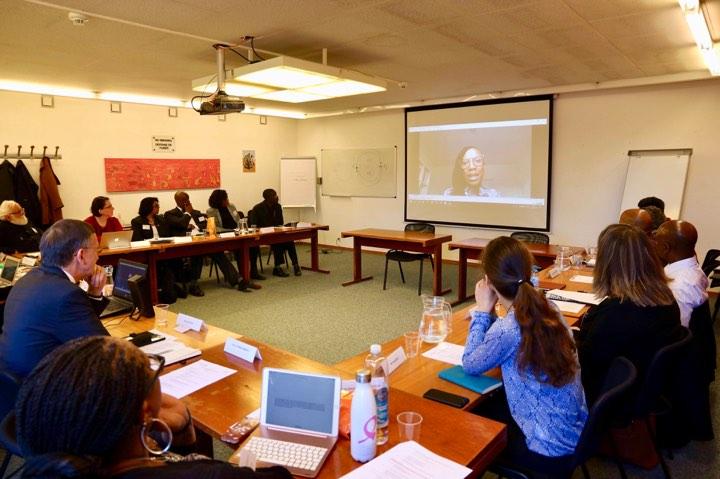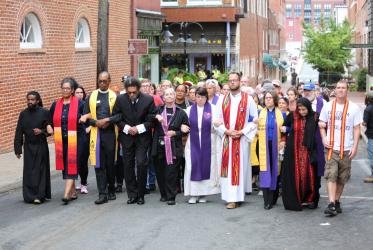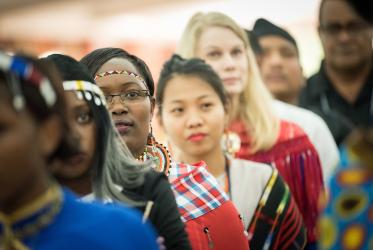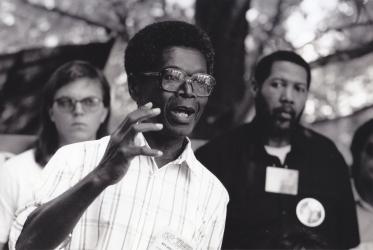“Think about your policies, practices and actions, not to just look back at the past, but to ask what can we do today?” These are the reflections of Judith Roberts, director for Racial Justice Ministries for the Evangelical Lutheran Church of America.
Roberts joined religious leaders from across the globe for a recent training entitled “Achieving Racial Justice Through UN Human Rights Mechanisms” organized by the World Council of Churches (WCC) Commission of the Churches on International Affairs. The training was organized as a follow-up to the 2016 WCC Racial Justice Solidarity visit to the USA and its subsequent commitment to make racial justice one of its priority areas. The training was parallel to the 24th session of the United Nations Working Group of Experts on people of African Descent.
Roberts said the three-day training offered her the opportunity to hear the stories of what’s happening globally around racism and gender-based violence and other forms of oppression.
“It helped me to take that step of telling people that we are all connected to something bigger,” she said.
Dr Demaine Solomons, who teaches theology and ethics at the University of the Western Cape in South Africa, said he valued the time spent not only talking about human rights but how human rights can be related to theology and the work of the church. “If anything, that is what we’ve concretized over the last three days,” said Solomons. “I’m quite surprised at how many similarities pop up over the different countries.”
Solomons said he believes some people do not take issues of race seriously enough. “My feeling oftentimes is people feel that, if it doesn’t affect them, why should they be bothered about it? Which is a little bit sad.”
Sunila Ammar, executive for Ecumenical Formation, Gender Justice and Youth Empowerment for the Christian Conference of Asia, said she found many tools and facets of conversation to take back home to Pakistan. “The instruments we have learned here have given me the idea that I can connect with the civil city and the church, and use this mechanism for the betterment of the people in Pakistan,” said Ammar.
E.Tendayi Achiume, the fifth United Nations special rapporteur on contemporary forms of racism, racial discrimination, xenophobia and related intolerance, sent a message of support to those gathered.
“I’m very excited to see that the World Council of Churches and its partners have put together this training at a time when this work is very urgent,” she said. "I would say that even while dealing with explicit forms of racism and racial justice it’s important to remember to focus on structures and institutions and historical legacies that continue to do the work of reinforcing subordination of groups on the basis of their race, of their ethnicity, of their national origin.”
Video message of the fifth United Nations special Rapporteur on racism








